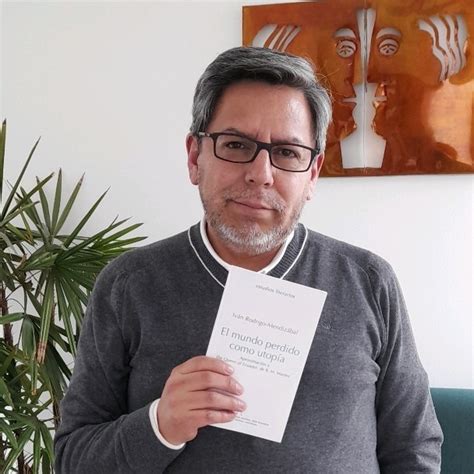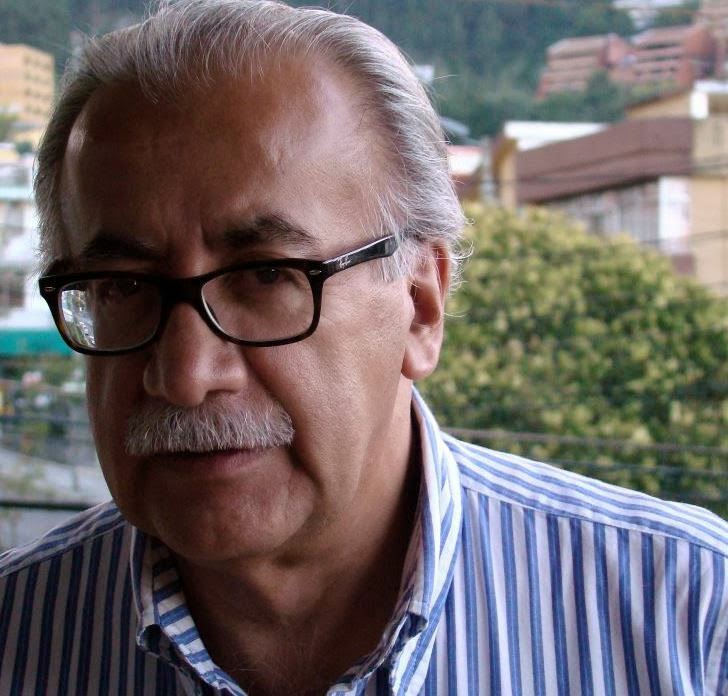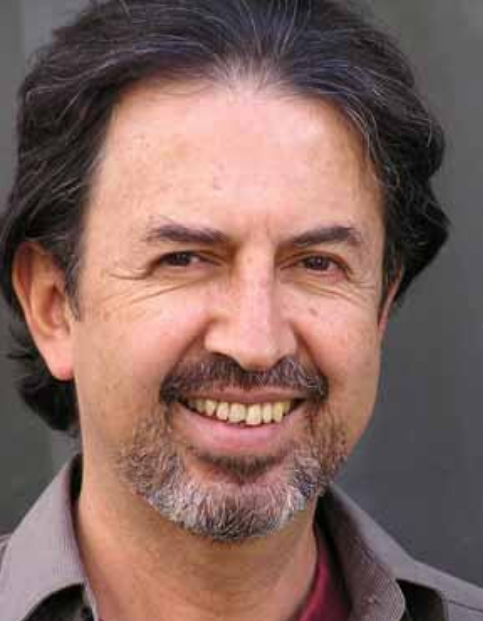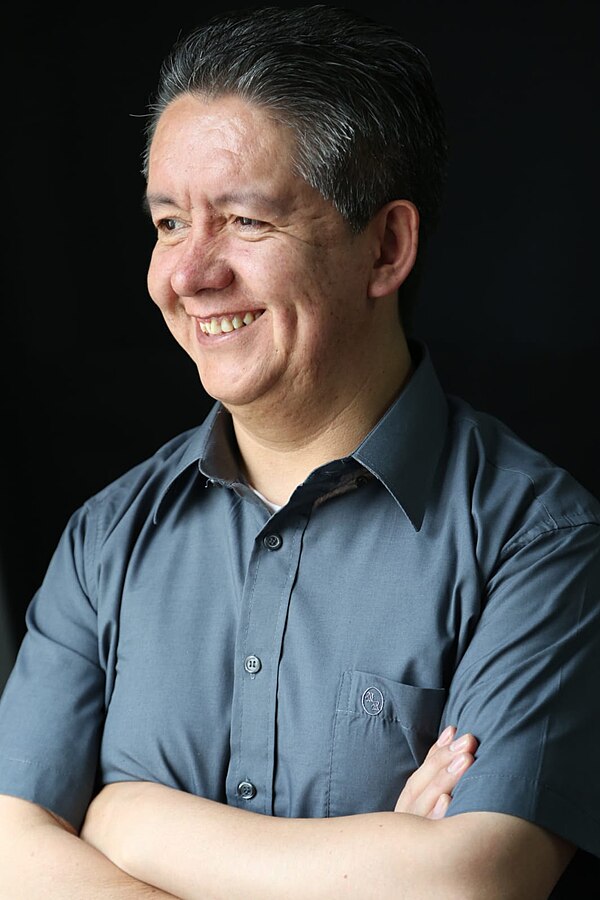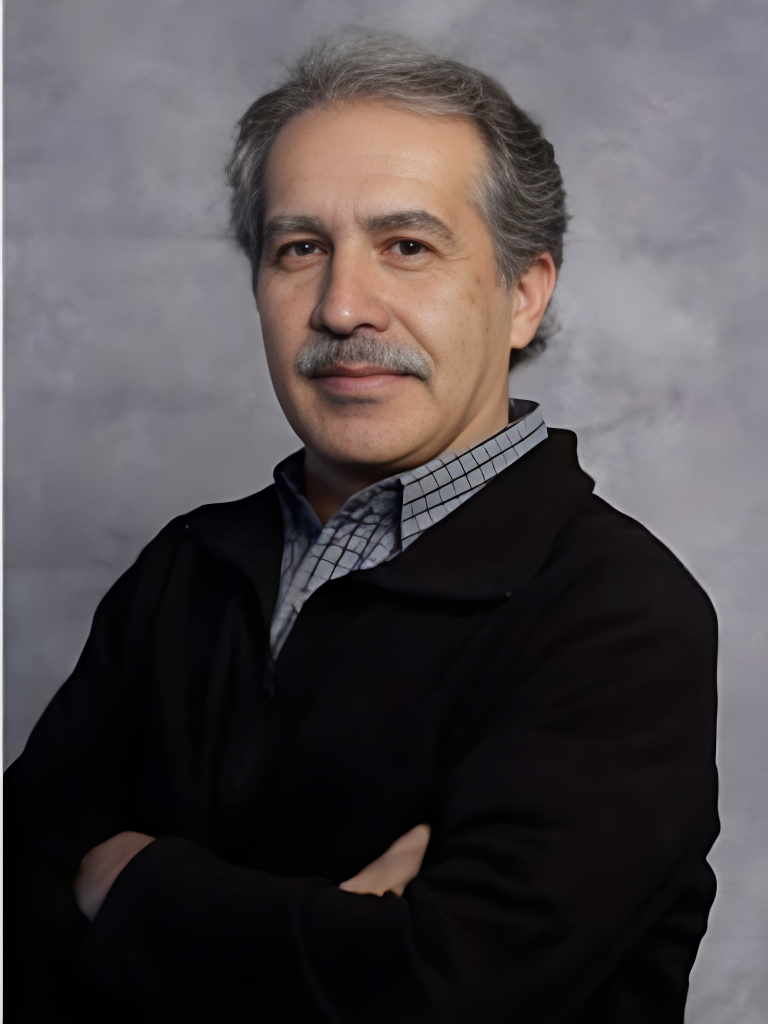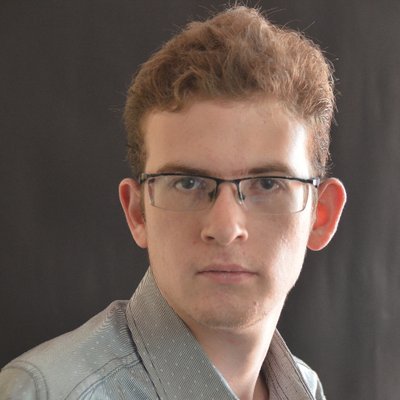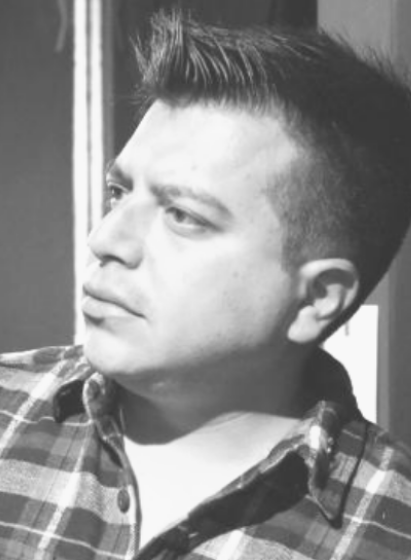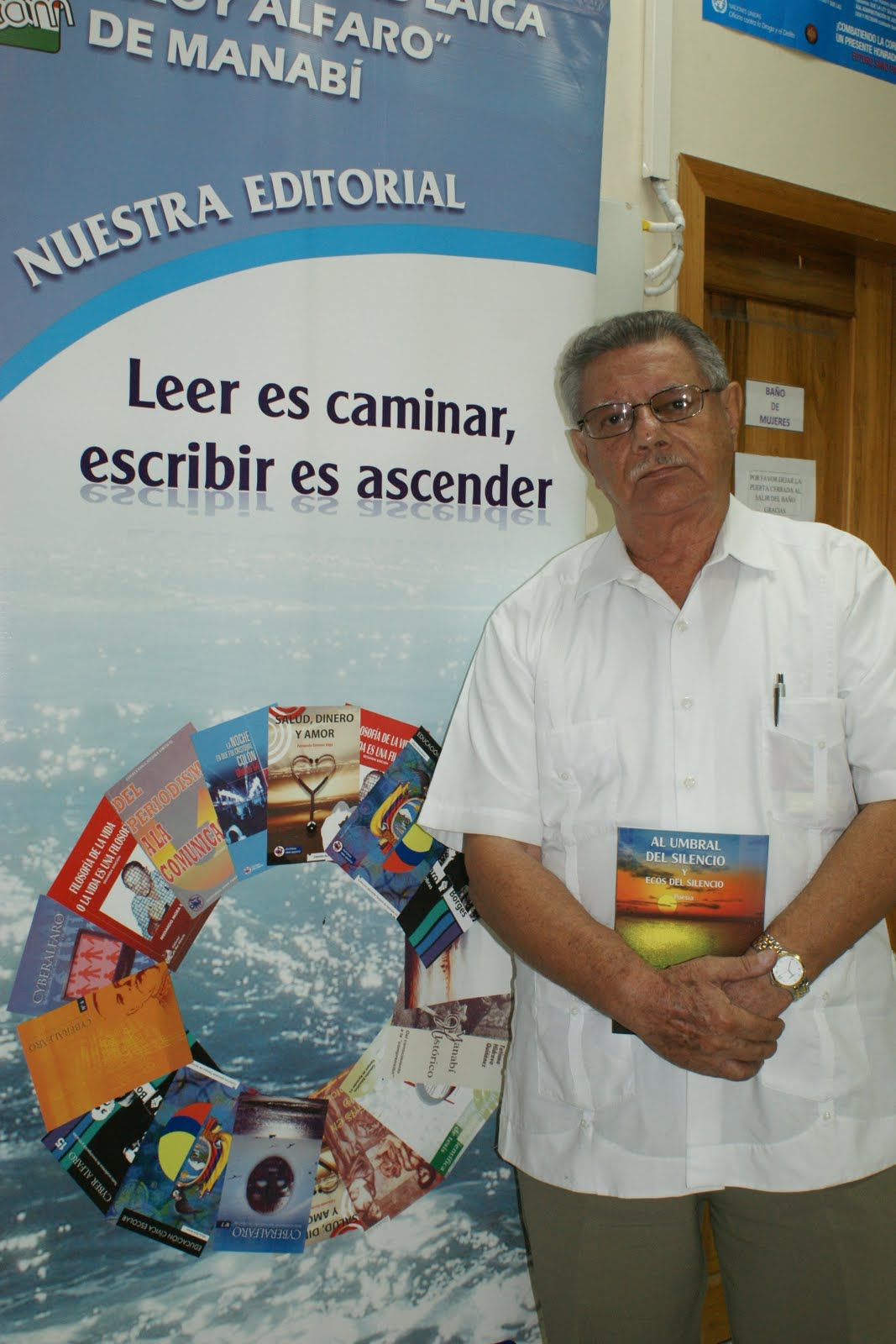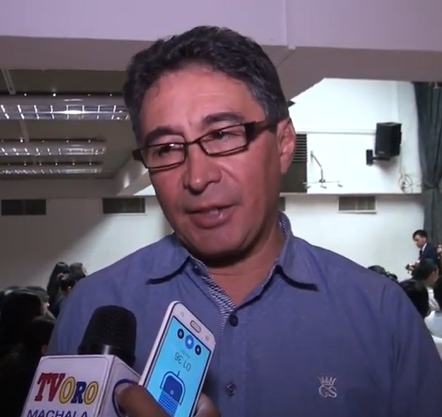Iván Rodrigo Mendizábal (La Paz, Bolivia, 1961) is a Bolivian scholar, researcher, and professor specializing in communication, semiotics, and Latin American science fiction. He moved to Ecuador in 1992, where he has since worked as a professor and researcher, earning a doctorate in Latin American Literature and a master’s degree in Cultural Studies from the Universidad Andina Simón Bolívar (UASB) in Quito. Mendizábal teaches at UASB, focusing on visual communication, discourse analysis, and the intersection of technology and literature. He is the author of numerous academic works, including Máquinas de pensar (“Thinking Machines”) and Imaginaciones científico-tecnológico letradas (“Literate Scientific-Technological Imaginations”), and is recognized for his pioneering research on Ecuadorian science fiction.
Continue reading “Iván Rodrigo Mendizábal”Category: 21st Century Writers
Antonio Correa Losada
Antonio Correa Losada (Pitalito, Colombia, 1950) is a Colombian-born poet, essayist, editor, and cultural manager residing in Ecuador. He has published numerous works of poetry, including El vuelo del cormorán (1989; “The Flight of the Cormorant”) and Desolación de la lluvia (1997; “Desolation of the Rain”), as well as essays and chronicles such as Crimen y castigo o la expiación que no cesa (2001; “Crime and Punishment or the Unending Atonement”) and Un camino abierto (2002; “An Open Path”). With a career spanning Mexico, Colombia, and Ecuador, Correa Losada has been an influential figure in publishing and cultural events, earning Ecuadorian citizenship in 2008 for his contributions to the country’s literary scene.
Continue reading “Antonio Correa Losada”Juan Secaira Velástegui
Juan Secaira Velástegui (Quito, Ecuador, 1971) is a poet, essayist, and visual artist whose work delves into themes of suffering, resilience, and personal transformation. He has published several critically acclaimed poetry collections, including Construcción del vacío (2009; “Construction of the Void”) and No es dicha (2012; “It Is Not Happiness”), which won the Jorge Carrera Andrade National Poetry Prize. In recent years, Secaira has adapted his creative process in response to his diagnosis of Amyotrophic Lateral Sclerosis (ALS), incorporating visual art into his body of work. His 2023 collection Eclipsa los arribos (“Eclipses the Arrivals”) earned him the Paralelo Cero Poetry Prize, further cementing his legacy as one of Ecuador’s most poignant contemporary voices.
Continue reading “Juan Secaira Velástegui”Alexis Naranjo
Alexis Naranjo Banda (Quito, 1947) is an Ecuadorian poet, university professor, art critic, and translator. He earned a Master’s degree in Linguistics from the University of Paris VIII and has published several notable poetry collections, including Profanaciones (1988; “Profanations”) and La piel del tiempo (1998; “The Skin of Time”), which won the Jorge Carrera Andrade National Prize. His work is known for its philosophical depth and rich language, influenced by both Latin American and Ecuadorian literary traditions. Naranjo’s poetry often explores themes of existence, spirituality, and the human condition.
Continue reading “Alexis Naranjo”César Molina Martínez
César Molina Martínez (Cañar, 1965) is an Ecuadorian poet and public servant currently residing in Chicago. He holds a degree in Political Science from the University of Cuenca and has served in various public roles, including as a councilman for the Municipality of Cuenca. His poetry, often exploring themes of exile, migration, and identity, has earned significant recognition, including the Premio Nacional de Poesía Jorge Carrera Andrade for Catholic Splendor (2000) and the Premio Nacional de Poesía César Dávila Andrade for Código de extranjería (2007). Molina Martínez’s work, known for its narrative intensity and biblical references, reflects his experiences living between Ecuador and the United States.
Continue reading “César Molina Martínez”Gustavo Salazar Calle
Gustavo Salazar Calle (Quito, Ecuador, October 3, 1966) is an Ecuadorian bibliographer, literary researcher, and historian. A corresponding member of the Academia Ecuatoriana de la Lengua since 2021, Salazar has dedicated over three decades to studying Ecuadorian and Ibero-American literature, with a focus on influential figures such as Benjamín Carrión and Rubén Darío. He has published 23 books, numerous scholarly articles, and has played a key role in the preservation of historical archives, including the Ecuadorian Consulate in Madrid and the Gaceta Judicial. His work continues to contribute significantly to the fields of literary and historical research in Latin America.
Continue reading “Gustavo Salazar Calle”David Acosta Herrera
David Acosta Herrera (Quito, Ecuador, November 8, 1986) is an Ecuadorian poet, writer, and cultural activist. Founder of the collective eLeLLo (Anarquía, Arte y Ciencia), Acosta promotes artistic engagement through workshops, events, and community projects. His first poetry collection, Termineternal, published by El Ángel, explores surrealism and symbolism in a poetic journey from life to death. He won first prize in the Certamen de Invierno – Poesía libre in Córdoba, Argentina, in 2018 for his poem Aztra. His latest work, El clamor de una nuez que se parte en silencio, was published in 2023.
Continue reading “David Acosta Herrera”Pablo Guerrero Gutiérrez
Fidel Pablo Guerrero Gutiérrez (Quito, Ecuador, November 1, 1962) is a prominent Ecuadorian musical historian, researcher, and author. With over 30 years of experience in the field, Guerrero has written more than 20 books on Ecuadorian music, including the comprehensive Enciclopedia de la música ecuatoriana. He studied at the Conservatorio Nacional de Música and holds a degree in Musical Pedagogy from the Universidad Técnica de Manabí. Guerrero is the founder of the Corporación Musicológica Ecuatoriana (CONMÚSICA) and has been recognized by the Academia Nacional de Historia for his extensive contributions to preserving Ecuador’s musical heritage.
Continue reading “Pablo Guerrero Gutiérrez”Irving Iván Zapater
Irving Iván Zapater (Quito, 1944) is an Ecuadorian lawyer, historian, and cultural leader. He holds a Doctorate in Jurisprudence with postgraduate studies in Economics from La Sapienza University in Rome and in History from the Pontificia Universidad Católica del Ecuador. A long-time professor and former Vice Dean at the Faculty of Jurisprudence at his alma mater, Zapater also served as Director of the Central Bank of Ecuador’s Center for Research and Culture (1981-1993) and led the National Council of Culture (1999-2000). He has authored several notable works on Ecuadorian history and economics, including La Vida de Cada Día and Imágenes del Ecuador en el Siglo XX, and was Director of the Revista Nacional de Cultura.
Continue reading “Irving Iván Zapater”Diego Montalvo
Diego Montalvo (Quito, 1995) is an Ecuadorian writer and journalist. He is a graduate of the Universidad de Las Américas (UDLA), where he studied journalism. Montalvo gained recognition in the literary world with his anthology Suspenso en Letras (2012), and he has been an active member of the literary and cultural community, serving in roles such as a member of the Academic Section of Literature of the Casa de la Cultura Ecuatoriana. In journalism, he has contributed to magazines like Leo and Emprendedores, and currently writes opinion pieces for La República, focusing on political and social issues.
Continue reading “Diego Montalvo”Kevin J. Enríquez Urresta
Kevin J. Enríquez Urresta (Quito, Ecuador, 2001) is an emerging Ecuadorian poet and architecture student who has gained recognition for his introspective and emotionally resonant poetry. While originally connected to various branches of the arts, he chose to dedicate himself to poetry around five years ago, using it as a means of self-expression and exploration. His work often delves into themes of identity, emotional connection, and fleeting moments of consciousness, as showcased in his debut book Destellos de conciencia, published as part of Editorial El Ángel’s “Ópera prima” collection.
Continue reading “Kevin J. Enríquez Urresta”David Sánchez Santillán
David Sánchez Santillán (Quito, 1981) is an Ecuadorian poet, lawyer, and Doctor of Jurisprudence. He has made notable contributions to Ecuadorian poetry, winning several awards, including the Gonzalo Escudero National Poetry Prize. He has published multiple poetry collections and participated in various national and international literary events. Alongside his literary career, Sánchez Santillán has a background in law, with a specialization in Environmental Law and Community Development, which complements his literary work and reflects his diverse professional interests.
Continue reading “David Sánchez Santillán”Vicente Cuesta Ordóñez
Vicente Cuesta Ordóñez (Cuenca) is an Ecuadorian poet, writer, and physician known for his enduring dedication to Manta’s cultural scene. He was an active member of the Grupo Cultural Manta for nearly 50 years. Historian José Elías Sánchez Ramos described him as an “indefatigable writer and poet.” His poetry collections include Al Umbral del Silencio (1999) and Por los rincones del tiempo – Sonetos de una vida (2013). He also authored the historical study Historia de la Medicina en Manta (History of Medicine in Manta).
Ramiro Dávila Grijalva
Ramiro Dávila Grijalva (Quito, 1945) is an Ecuadorian poet and playwright known for his literary works that explore cultural and historical themes. He is the author of El Canto de las Sirenas (1982), a notable collection of poetry, and the play Tragedia de la Prisión y Muerte de Atahualpa (1988), which dramatizes the tragic fate of the Inca ruler Atahualpa. His other works include the play Leonor Yupangui, Esther de las Indias (2018), which is inspired by indigenous legends and history, as well as other plays like El Cóndor Enamorado and La Leyenda del Tío Lobo y el Sobrino Conejo. His poetry collections also include Historia de un Jilguero and Jugar Rayuela, Mi Voz y Otros Delirios (2007). Dávila Grijalva’s contributions have been recognized and preserved in various Ecuadorian libraries and cultural institutions.
Continue reading “Ramiro Dávila Grijalva”Iván Petroff Rojas
Iván Petroff Rojas (Cuenca, 1956) is an Ecuadorian writer, poet, and educator known for his contributions to contemporary literature. A prominent figure in the “new Cuenca literature” movement of the 1980s, he has published a diverse body of work that includes poetry, short stories, and essays. His writings often explore themes such as mythology, magic, and music, with a focus on the depth of human experience. Notable works like En las formas del amor y la guerra (1989) and Fuego cruzado (2020) showcase his ability to blend cultural and social commentary with narrative art. Petroff Rojas has also been influential in the cultural scene of Cuenca, serving as the president of the Casa de la Cultura Núcleo del Azuay and teaching at the University of Cuenca. His dedication to literature and culture has made him a significant voice in Ecuadorian arts and letters.
Continue reading “Iván Petroff Rojas”
